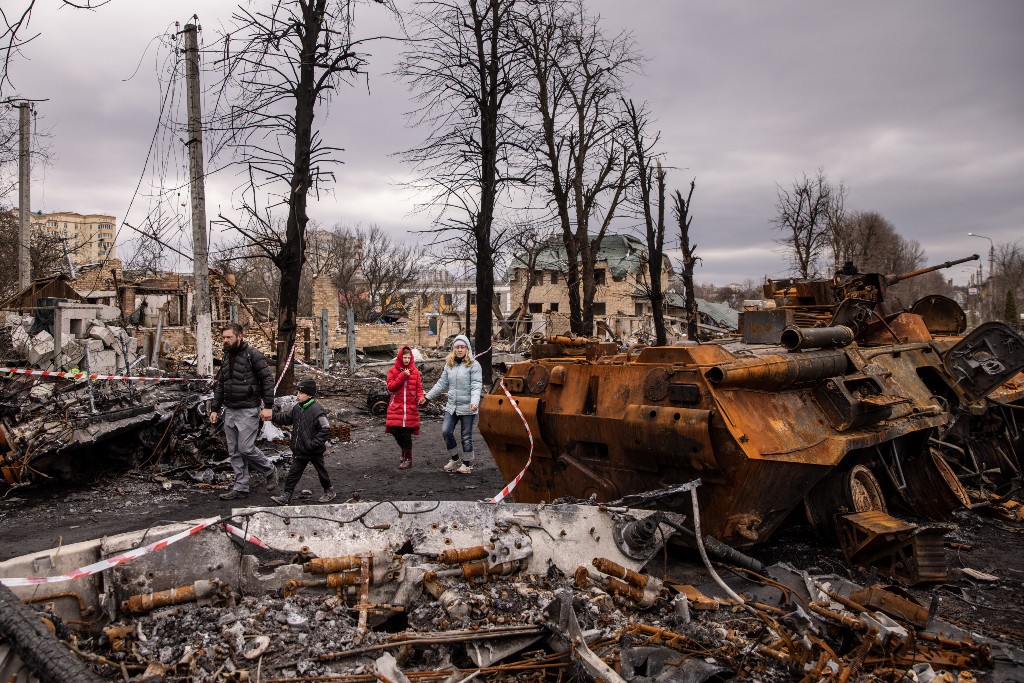
(Editor’s Note: This article introduces the Just Security symposium “The Future of Atrocity Prevention,” organized in collaboration with the Programme on International Peace and Security (IPS) at the Oxford Institute for Ethics, Law and Armed Conflict. Links to each installment can be found below as they are published. The symposium builds on research conducted by IPS on the implications of shifting geopolitics for atrocity prevention, which can be viewed here.)
The atrocity prevention agenda was forged in a unique geopolitical moment. The post-Cold War era saw the decline of great power rivalry, the renewal and establishment of new forms of multilateralism, and the propagation of liberal values, chief among them human rights, democracy, and the rule of law. This confluence of factors enabled various international protection agendas to advance, from atrocity prevention and protection of civilians to international criminal justice.
Today, however, the field of atrocity prevention has reached an inflection point. The past two decades witnessed the end of the unipolar moment in international affairs, precipitating the decline of the U.S.-led international order and the return of great power rivalry, namely among China, Russia, and the United States. The multilateral system has come under increasing strain as a result, putting protection agendas such as atrocity prevention at risk globally – even before Russia’s 2022 full-scale invasion of Ukraine and the current war between Israel and Hamas.
While authoritarian leaders in China, Russia, and beyond have shown an increasing willingness to commit atrocity crimes, the United States and its allies have not done all they can and should to advance atrocity prevention, and in some cases have faced allegations of widespread abuses themselves. There is now little international consensus on the atrocity prevention agenda, and the prospects for forging such a consensus appear bleak amid geopolitical competition and democratic backsliding. At the same time, the need for such a consensus has never been greater, as emerging technologies and climate change exacerbate the risk of violence and the commission of atrocity crimes.
Why, exactly, has atrocity prevention failed to live up to expectations? Do toolkits and frameworks of analysis developed over the past two decades remain fit for purpose, or do shifting geopolitical landscapes and the emergence of new challenges and threats demand major revisions – and even new tools and frameworks altogether? Or are the mechanisms and infrastructure of atrocity prevention themselves sound, and the issue, as it has been from the outset, is a lack of political will to effectively implement them? If so, does this require a recalibration of the priorities and goals of the field?
The purpose of this symposium is to reflect on these questions and what the next chapter of mass atrocity prevention might look like, as well as to offer concrete recommendations for how States and other actors can help carry the atrocity prevention agenda forward.
The symposium begins with the following article, with more to be published in the coming days and weeks:
Other authors in the series will include:
- Federica D’Alessandra
- Cecilia Jacob
- Karen Smith
- Ambassador Stephen Rapp
- Scott Straus
- Alex de Waal
- Gwendolyn Whidden
- Nicole Widdersheim
- Lawrence Woocher
IMAGE: Residents walk amid debris and destroyed Russian military vehicles on a street on April 06, 2022 in Bucha, Ukraine. The Ukrainian government has accused Russian forces of committing a “deliberate massacre” as they occupied and eventually retreated from Bucha, 25km northwest of Kyiv. Hundreds of bodies were found in the days after Ukrainian forces regained control of the town. (Photo by Chris McGrath/Getty Images)
This post was originally published on this site be sure to check out more of their content.








